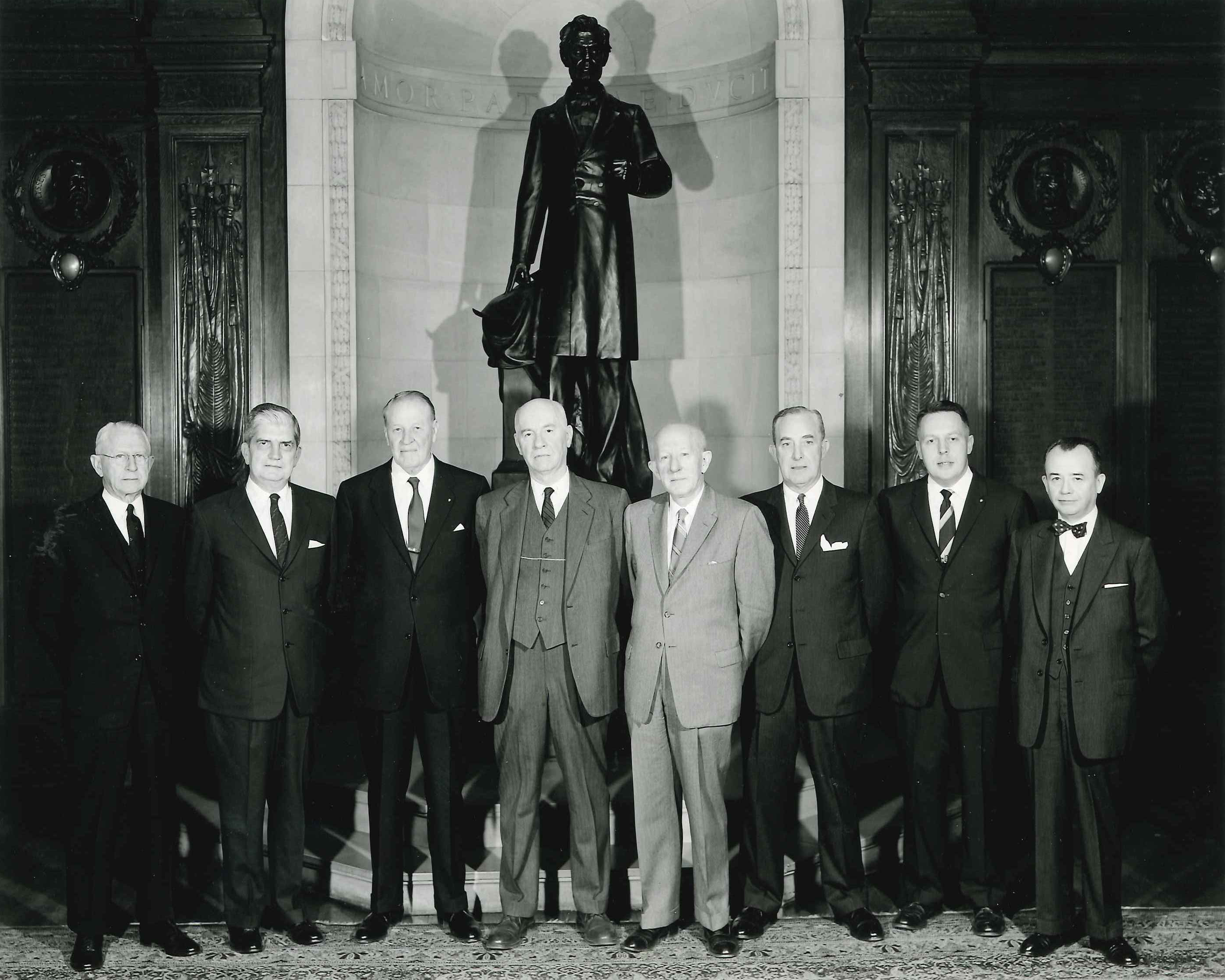Fraternity
- 1714 Hinman Ave. Evanston, IL 60201
- headquarters@sigmachi.org
- Directory

Significant Sig David Dillon, KANSAS 1973, says the time that he spent serving as Consul of his undergraduate Fraternity chapter and as student body president at the University of Kansas provided him with experiences and opportunities that benefitted him during his professional career. In the latter role, Dillon developed relationships with university administrators and in the process learned what he considers to be two of the most important lessons of his working life: how to ask others for feedback, and how to respond to such feedback once you receive it. Those lessons in giving and receiving feedback, as well as how to respond changing environments, helped Dillon cultivate high-performing teams as chairman and CEO of Kroger Co. from 2004 to 2013 and in later roles as a board member for Hallmark Cards Inc., 3M Co. and the University of Kansas Endowment Association, which he leads as its chairman.
Dillon, who won Sigma Chi’s 1973 International Balfour Award as the Fraternity’s most outstanding graduate that year, sat down virtually in January 2021 with 2020 International Balfour Award winner Sam Romes, LOUISVILLE 2020, and 2021 International Balfour Award winner Jared Kuykendall, OKLAHOMA STATE 2021, to talk about his experience winning the International Balfour Award, his tips for creating a culture of feedback in undergraduate chapters and the lessons he’s learned about responding to change.
Like a lot of choices that I made in my younger years, they were more because my friends went that direction or I knew someone that had befriended me in a way that was important that had gone that direction. It turned out that there were a couple of Sigma Chis from Hutchinson, [Kansas,] my hometown, who I knew — older guys who I grew up with and I had admired and that always treated me with respect, which for me is a really important characteristic of looking at individuals around you particularly when you’re young kids. They encouraged me to go that direction and I had four other friends from my high school, all of whom that I had grown up with, that went to Sigma Chi as well. So that was the natural reason. I went to the University of Kansas [for the] same reason. I really didn’t look around. That’s where my friends were going to go, I’d always loved the Jayhawks and I thought, “Why not? I’ll go there, too.”
The year that I received the [International Balfour Award] recognition, we were up in Canada, in Toronto. Two things happened there that were in many ways life-changing: One, was [meeting] the other finalists. The three of us became good friends there and spent a lot of time getting acquainted. It was a really fun experience, and I think I can genuinely say that we appreciated each other and felt that any one of us could have won that award and we’d be fine with that because they were worthy.
For me, the single most important lesson I’ve learned over my working whole career is how valuable and useful finding ways to get real, genuine, objective [and] open feedback. When people ask for feedback, that gives permission — to your boss or to your friend or to your brother — to tell you what they think. Step no.1 in learning to receive feedback is to ask for it, because that all of a sudden makes it easier for someone to give it. Step no. 2 is [being mindful of] how you react when they give it. The answer has to be by saying “Thank you.” If you react, if you show emotion, or show any defensive characteristics at all, if you argue about it, if you say, “I don’t do that. That’s not me,” then the very next time the person isn’t going to level with you. So, you have to learn to not react and react inside but don’t react outwardly.
People generally can’t change a lot, but they can change a little. And often, a little is enough. Think of [giving feedback] as two people this far apart. If you tell me things that I do that annoy you or get in the way of our effective working together and I listen to that and make a little bit of movement, I move a little bit but you also move a little bit because by you voicing that thought and actually engaging me in the conversation [about my habits and behaviors], you became more tolerant of my style and I became more sensitive to the impact it has on you. So we both moved a little. That means the distance between us narrowed. That’s why I believe that a little bit of movement actually can be a lot of movement and be really useful.
Change is going to happen. The only choice you have is not whether things are going to change, the only choice you have is how you’re going to interact with that change. If you decide not to interact with it, you’re going to be left behind. If you decide to interact with it in an effective way the you’ll move ahead with the change. And that to me is the message of being a part of the Sigma Chi Fraternity: It’s not about just your chapter, and it’s not about just what happens in college. It’s about what you learn about yourself, what you learn about others, what you learn to care about with other people and how well you collaborate with them through life. The Fraternity is a part of that process. It helps that happen, and happen well.

From left are International Balfour Award winners Sam Romes, LOUISVILLE 2020, and Jared Kuykendall, OKLAHOMA STATE 2021, and Significant Sig David Dillon, KANSAS 1973, who also won the International Balfour Award in 1973 as the Fraternity’s most outstanding graduate that year. Photo illustration by David Jones, DEPAUW 2019.